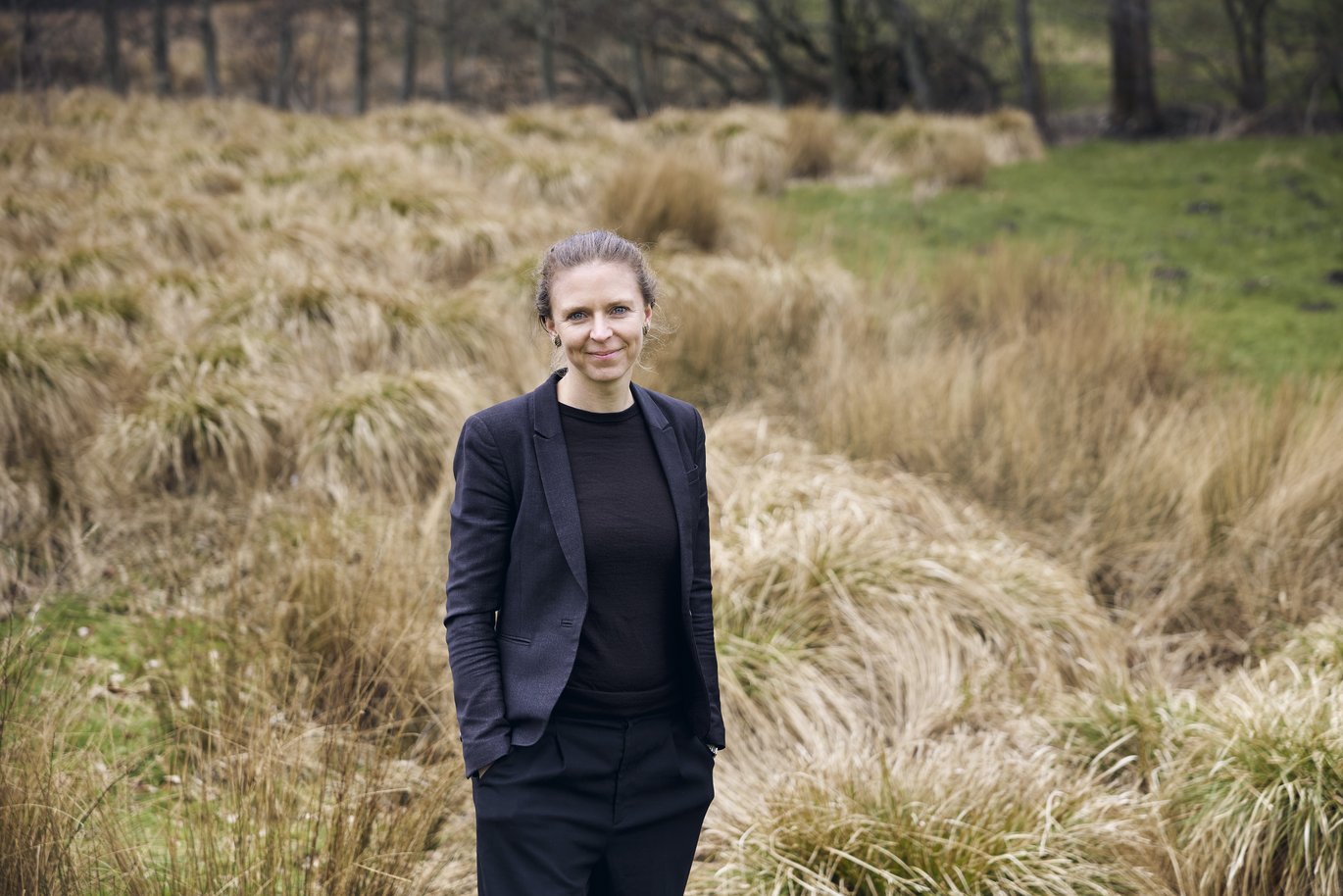Discover more about the landscape
Professor Mette Løvschal takes us on a journey over thousands of years when she uncovers the history of heath and pasture landscapes. Her research doesn’t only tell us about the past. It also makes us wiser about human-made nature today – from East Africa to East Jutland. Now Mette Løvschal receives the Victor Albeck Award for her innovative research on the relationship between humans and nature, which could prove to be an important part of the green transition.

Professor Mette Løvschal, recipient of the Victor Albeck Award 2023
- Professor of archaeology
- Educated as an archaeologist but has also taken courses in anthropology, cognitive semiotics and architecture
- Received the Aarhus University Research Foundation PhD Award in 2015 for her project on the emergence of boundary markers in landscapes
- Received an ERC Starting Grant in 2019 for her project ANTHEA - Anthropogenic Heathlands: The Social Organization of Super-Resilient Past Human Ecosystems
- Received HM Queen Margrethe II's Science Award in 2023
- Has published her research in the Proceedings of the National Academy of Sciences (PNAS), Nature (Scientific Reports) and World Archaeology
- Is employed in a joint position between Aarhus University and Moesgaard Museum and is working to improve research collaboration with the Danish museum world more generally, for example through her membership of the Association of Danish Museum’s archaeological and research committees.
Facts about the Victor Albeck Award
The Victor Albeck Award of DKK 100,000 is presented to a young, talented researcher associated with Aarhus University who is engaged in scientific research and has generated significant results offering great promise for their future work. The award is presented in May, along with the Aarhus University Research Foundation PhD Awards.
Outside the village of Sejs in Central Jutland are the areas of Sindbjerg and Stoubjerg. These areas contain a type of nature that once covered vast swathes of Europe but which is now a rarity. Heathland.
Here the sky is high and the vegetation is low. The heather gives the landscape its characteristic purple hue, and flocks of birds take flight over the ground, which is also teeming with life. You may spot a viper, but you’re unlikely to see many people.
It would have been a different story if you’d visited the site 4,000 years ago. Here the stone age people would have been busy creating the heath – felling the trees with large stone axes and burning the undergrowth. All to allow their sheep and cattle to graze.
This is where Professor Mette Løvschal’s research takes its point of departure: the idea that, to a large extent, humans have created the landscape we have today. Nature and culture have woven themselves into one another. By comparing satellite images, excavations, pollen analyses and much more, she can show how the heath emerged and was maintained over millennia.
“The heath is a deeply unstable type of landscape. It quickly turns into a wood if people don’t manage it properly. And one person cannot manage it alone – several people need to work together if the heath has to be burned every 7 to 10 years, for example. So we can see that communities played a vital role in the heath and its survival until today”, says Mette Løvschal.
Wildebeests and zebras cannot pass
The relationship between humans and nature is a recurring theme in Mette Løvschal’s research, which can be applied in many different contexts, including in East Africa. For a long time, the population here used the Savanna as a large common grazing area, and people coordinated where livestock should be grazed. But right now fences stretch across the area, and Mette Løvschal – along with a large team of researchers from biology and anthropology – has documented the implications of this process:
“Because of these fences, the large migration of animals such as wildebeests, zebras and gazelles is being prevented, and the ecosystem is starting to collapse. But this also has major social and cultural consequences for people, who find themselves unable to reach water sources during droughts. We can see similar phenomena, that is the enclosure of land and the collapse of associated ways of life and ecological systems, in several places across the globe”, says Mette Løvschal.
This research is being applied locally as a planning tool to identify regions where the practice of erecting fences should be prevented in order to preserve animal migration flows.
Humans and nature are interconnected
Mette Løvschal receives the Victor Albeck Award for her groundbreaking, interdisciplinary research that brings new perspectives into the debate on land use, nature conservation and the green transition, including in Denmark, where all of nature is to some extent marked by humans.
“The appearance of the Danish forests, meadows, fields and heaths is a result of a complex interplay between people, animals and landscape changes over millions of years. I don’t believe that people and nature are opposites, and I think we’d get a lot further with the green transition if we included people and gave cultural landscapes a voice and a place”, she says.
Heathland is a threatened landscape, and we don’t know if there will be any more heaths in Denmark in ten years. But the heath does something to us:
“We are used to living in urban areas and walking in forests where we can’t see much sky or very far in front of us. When we are in heathland with expansive horizons, it gives us a sense of spacial infinity – but also a form of temporal continuity. It enables me to contextualise myself. I can see myself in a story. The rich story of people and the landscape”, says Mette Løvschal.
